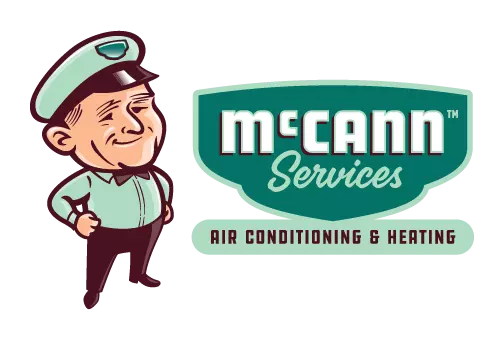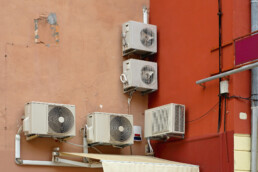Did you know that 4% of global deaths are attributed to poor air quality? That’s 2.3 million preventable deaths in a single year. Failing to schedule an indoor air quality assessment in Bellaire, TX could put your health at risk.
Schedule your next assessment before spring weather rolls in. Why is spring the best time for indoor air quality testing? Read on to find out.
Spring Indoor Air Quality Testing
As spring weather rolls in, allergy season will as well. Poor outdoor air quality can contribute to poor indoor air quality. Seven of Texas’ ten largest counties, including Harris County, received an F grade for ozone pollution.
Neglecting to schedule testing during the spring can mean a difficult (and unhealthy) summer. Here are a few reasons why spring is the best time to schedule an assessment.
It’s Prime Allergy Season
As spring weather heats up, plants that were laying dormant over winter will come back to life. Flowers will start pushing through the soil and producing pollen. Grass and trees will add color to your previously dull yard.
While the transition from winter to spring is beautiful, it releases more pollen into the air. Spring is allergy season.
Increased rain and humidity could lead to mold and mildew growth within your home. Spores can proliferate on grass, rotting wood, or damp leaves. They can spread through your air vents or grow in damp areas.
These allergens can affect your home’s indoor air quality. Consider having your air quality and HVAC system checked.
HVAC maintenance services ensure your unit is functioning as intended before temperatures rise. As part of your AC tune-up, ask to have your HVAC filter replaced.
The filter will collect tiny airborne particles, including pollen. If the filter clogs, the HVAC system will struggle to push air through. You may need more expensive AC repairs if the system breaks down.
Your HVAC technician can replace the filter to ensure better airflow. They can recommend a new filter with a stronger MERV rating. These filters are more effective at catching tiny airborne particles.
Replacing your air filter will help you breathe easier at home. You can minimize allergens for better air quality.
Spring Cleaning Affects Air Quality
With warmer temperatures rolling in, you’re probably ready to store away blankets and start cleaning. About 80% of people plan to spring clean (a 10% increase from three years ago). About 45% take three or more days to fully spring clean their homes.
Spring is a time for airing out your home. Throwing the windows open, however, can invite pollen and other airborne particles inside.
Your cleaning habits can also contribute to poor air quality. Many household cleaners contain volatile organic compounds (VOCs). VOCs can contribute to allergic reactions, headaches, and respiratory problems.
There’s a link between exposure to chemicals from cleaning supplies and respiratory illnesses. Products that contain VOCs include:
- Oven cleaners
- Air fresheners
- Dry cleaning chemicals
- Aerosol spray products
- Chlorine bleach
- Furniture and floor polish
- Rug and upholstery cleaners
- Detergent and dishwashing liquid
Avoid mixing bleaching with ammonia. The combination can create gasses that cause breathing problems and death.
Spring cleaning using these products can release chemicals throughout your home. Consider using natural cleaners to minimize pollution. You can mix white vinegar with water as a low-cost alternative.
Schedule indoor air quality testing after completing your spring cleaning. You may recognize it’s time to switch to alternative cleaning options.
Summer AC Repairs
Most HVAC units break down during the summer (when they’re working harder to keep homes cool). Many HVAC companies are overwhelmed by requests during this time.
Scheduling an air quality assessment during the spring can help avoid an emergency. Instead, you can ensure your unit is functioning effectively before temperatures rise.
Consider investing in routine maintenance. A technician can keep your unit running at its best year-round.
Improving Your Indoor Air Quality
Before your air quality deteriorates, contact an experienced indoor air quality specialist. They can make customized recommendations based on your needs.
They may recommend installing humidifiers, UV air treatment systems, or electronic air cleaners. Their solutions can keep bacteria and pollutants from spreading throughout your home.
Recognize Pollution Sources
An experienced air quality specialist can recognize where airborne pollutants within your home are coming from. These sources may include:
- Fuel-powered engines in your garage
- Gas stoves or unvented heaters
- Radon gas rising from the ground
- Your cleaning supplies
- Nearby plants
- An unserviced HVAC
Recognizing where the pollutants are coming from will allow you to take preventative action. For example, perhaps your HVAC system has contributed to mold growth within your home.
Your HVAC and Mold
When you leave your HVAC system on cool during the cold winter months, moisture in your home will condense. Mold will grow. When you start your HVAC system up for the spring, these spores will spread throughout your home.
Mold can grow in your HVAC system’s drain pan. Your AC unit or high-efficiency furnace draws moisture from the air.
The moisture condensates in the drain pain. If neglected, the water can contribute to mold growth.
Your HVAC technician can check the condensate drain line. This pipe removes water from the drain pan. If the line isn’t flushed, sludge can build, causing mold.
The evaporator coil draws heat and moisture from your indoor air. It can become coated with dust, causing mold to grow.
Schedule routine air conditioner cleaning and maintenance checks. A technician will assess your unit to ensure it’s running properly. With their help, you can minimize mold growth for better air quality.
Schedule an Indoor Air Quality Assessment
Don’t wait until a hot summer in Bellaire, TX to request an indoor air quality assessment. Instead, call your local HVAC company right away. They can assess your home’s air quality and HVAC unit.
Trust our team at McCann Services to clear the air and improve your home’s indoor air quality. We cater our services to each household’s unique needs.
Rely on our skilled technicians and three decade’s worth of experience. Contact us today to schedule your air quality assessment.

